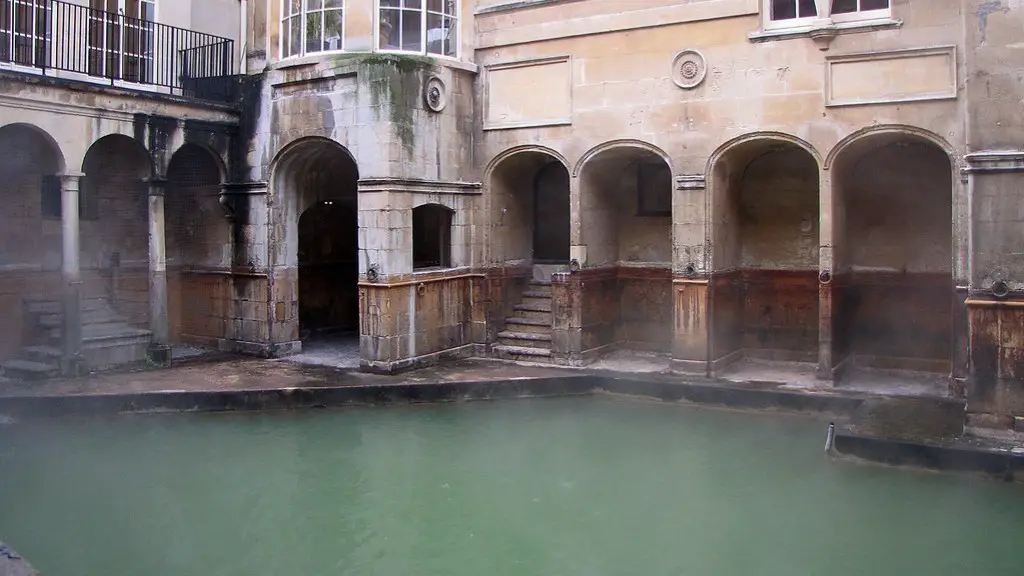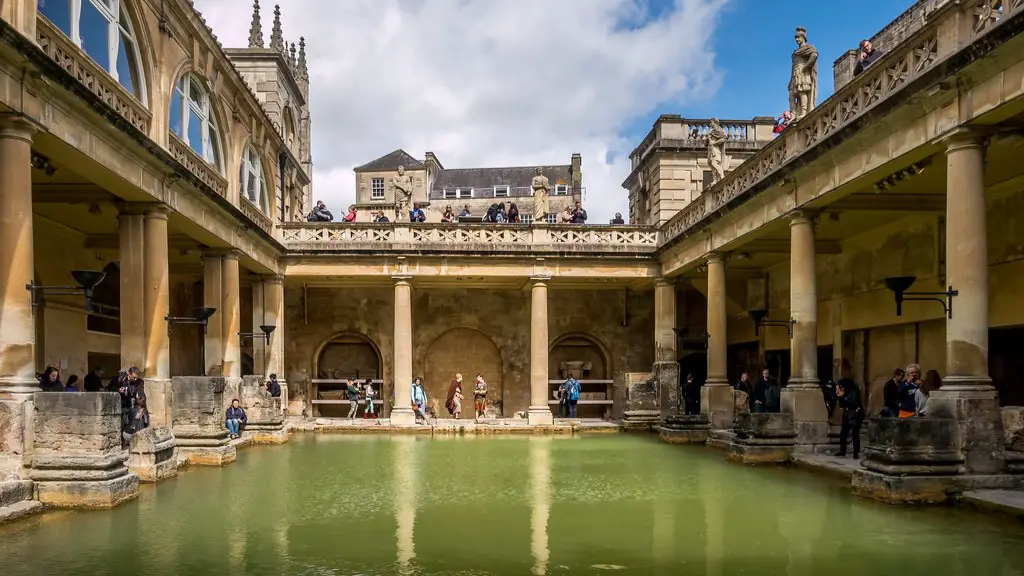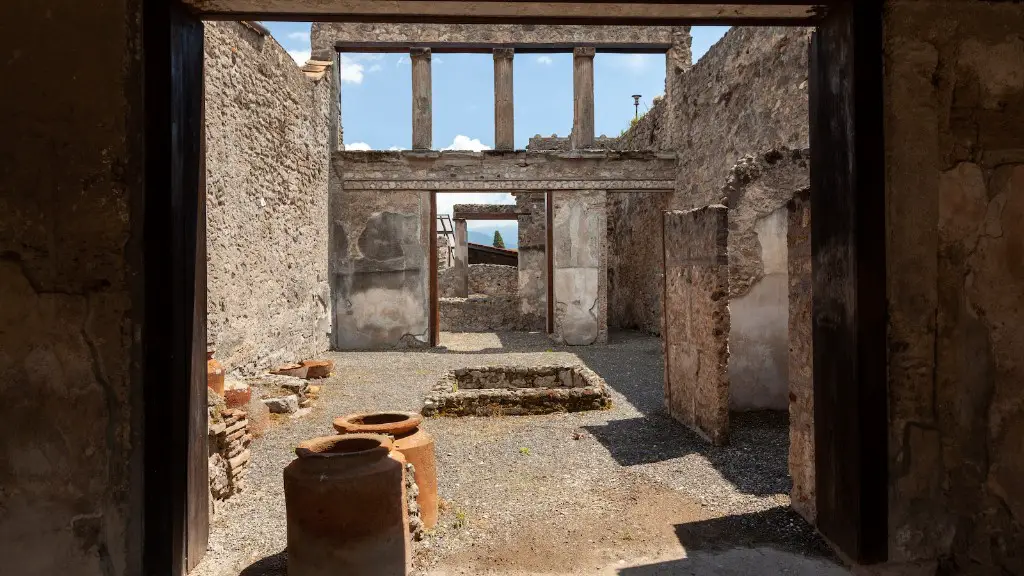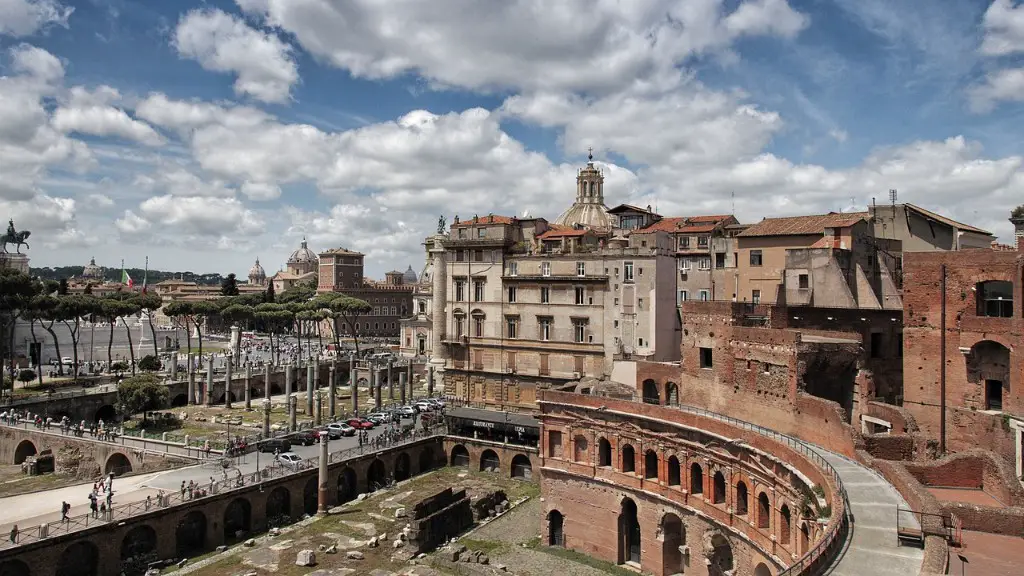What Was Ancient Rome?
Ancient Rome was a historical civilization that rose to prominence in the Mediterranean region between the 8th and 3rd centuries BC. It was an epicenter of power, politics and culture, and was known to have a highly structured and advanced society. The Roman influence continued to be felt in the Mediterranean basin, eventually spreading to other parts of Europe, Northern Africa, the Near East and beyond.
Where Did the Ancient Romans Live?
The Ancient Romans lived primarily in the Italian peninsula, centered around the city of Rome. At its peak, their influence was felt in most of Europe, North Africa and the Middle East, with lands as far away as Spain, Anatolia and the Northern regions of Africa also falling under their control.
Additionally, Romans who had become wealthy or sought to spread Roman culture abroad would often establish homes and colonies in other parts of the world. Examples of this can be seen in the England, France and some parts of the Mediterranean, with many ancient Roman ruins still standing today.
Ancient Roman Cities
Ancient Roman cities at the time of the Roman Empire were the hubs of civilization. They served as centers of commerce, manufacturing and the arts. The cities were built up over time, sometimes on the sites of previous settlements, and were planned out in a very organized way.
Some of the more famous ancient Roman cities included Ancient Rome, of course, but also cities such as Antioch, Alexandria and Constantinople. The city of Rome became the largest of all the cities in the empire, as it was the political and religious center.
Daily Life in Ancient Rome
Daily life in Ancient Rome was centered around the home, which was the focal point of social activity. Many things could be done in the home such as entertainment, relaxation and conversation. The home was where much of the socializing took place, as well as religion, art, education and business.
However, the Roman people also had a well-developed public life where socialization was centered around the forums or public squares, or the theater for entertainment. Ancient Romans also loved to participate in sports and chariot racing; gladiator fights were also popular entertainment.
Rome vs the Barbarians
The Romans found themselves in frequent wars with “barbarian” tribes who lived outside the boundary of the empire or threatened its borders. This meant that the Roman army was often on the go, whether it was to protect the borders or to try and conquer new territory. They were often successful in their campaigns and were able to bring new lands and peoples under the rule of Ancient Rome.
Roman Religion and Culture
Roman religion was based on a combination of Greek and Egyptian beliefs, the worship of certain gods and goddesses and a belief in an afterlife. Roman culture was also heavily influenced by the Greeks, with the language, art, literature and architecture of the empire being heavily influenced by them.
Decline and Fall of the Roman Empire
The Roman Empire started to decline in the 3rd century AD after a period ofinternal struggle and economic troubles. The invasion of the Goths, Hunsand other “barbarians” from the East, eventually led to the fall ofRome in 476, signalling the end of the Roman Empire.
Invasion and Destruction of Rome
The invaders ultimately caused much destruction as they plundered and pillaged the cities they conquered. Rome was no exception and much of the city was destroyed during these tumultuous times, leaving behind ruins which still survive today and can be seen in Rome and throughout the Mediterranean.
Roman Legacy
Despite the fall of the Roman Empire, its legacy still lives on today. The impact of their culture, religion, language and lawsare still evident in many modern day societies. Rome continues to bea major tourist attraction, and its ruins continue to remain a source of inspiration for many.
Roman Politics and Law
The Ancient Romans are credited with creating one of the first formal legal systems for the purpose of governing their empire. Roman law was based around the Constitution of the Twelve Tables; a set of laws which set forth binding rules and regulations that all members of society had to follow.
Politics and legislation in Ancient Rome was still heavily influenced by the Roman Senate, which was composed of 300 aristocratic senators who had the power to make laws and govern the citizens of Rome. This system was replaced in the later part of the Roman Empire by a more centralized system of government.
Roman Military and Warfare
The Roman Empire was unique in that it was a Republic rather than a monarchy, and its military was closely tied to its politics. Rome was known to have a large, well-disciplined army, and its officers and troops often used the latest technology and tactics to secure victory during their campaigns.
Their rule was known to be heavy-handed and violent, and Roman armies would often resort to extreme measures such as civilian massacres, burnings, enslavement, and other forms of deportation to quell the unrest of their foes.
Roman Architecture and Art
The architecture of the Roman Empire was heavily influenced by the Greeks and could be seen in many of the monuments, buildings and structures that survive today. Roman architects made use of the arch and vault designs, as well as incorporating Corinthian columns into their designs.
Roman art was heavily centeredaround realism, and their sculptures and paintings were often portrayals of their gods and heroes. Roman literature was also widely appreciated by the common people, and was often used as a way to express the emotion and feeling of the time.
Conclusion
Ancient Rome was a powerful, influential and highly structured society that had a heavy presence across the known world. Their legacy continues to live on to this day, through their monuments, art, literature and most importantly, their laws and political system. Even though they are no longer around, the Romans of Ancient Rome remain an example to us all.



